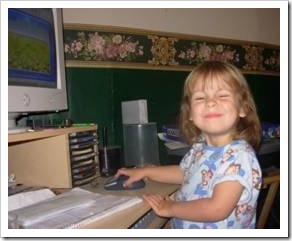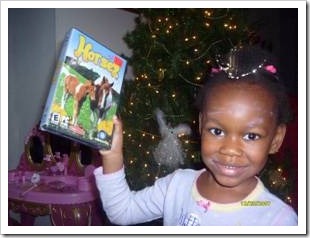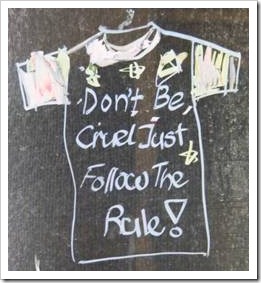
I am a fixer. I have been a fixer all my life. This means I see problems and things that could work better all the time and immediately come up with clever solutions for them. Waiting patiently for things to work and then praising them does not come naturally for me.
If you are a fixer like me, or if your kids “never do anything good/right” or always “give you a hard time”, this post may really help you.
Always look on the bright side of life
– Monty Python in Life of Brian
Our 9-year-old daughter Noff spends way too much time watching TV, watching video clips on YouTube and playing computer games. Every day, we practically drag her from one of these activities, not kicking, but sometimes crying. Being busy with other things and having other kids in the house, we do not always pay close attention to what she does. As soon as our backs are turned, she sneaks back to watching or playing on the computer.
Our philosophy is that movies portray distorted views of life to kids. Being kids, they might accept these views as reality and adopt some very limiting beliefs about how people should behave. We also think that when you play against the computer, nobody really gets hurt when you win, so most computer games encourage competition, selfish focus, strict result orientation and disregard for others.

What is Noff going to turn into with all these movies and games she plays?
Well, some time ago, Noff was invited to a pool party. For the first time, there was a disabled girl there (let’s call her Gaby). She could walk with great effort and needed support to get on the slide, climb out of the pool and just walk around. But the girls did not seem to mind. When we arrived, we saw Gaby, supported by two girls, walking towards us with her face lit up with joy. Throughout the day, despite the extra physical challenges, the girls kept her with them, wet and excited.
Not bad for TV-watching, computer-game-playing, accessory-chasing, modern-day girls.
A few days ago, I saw Noff climbing a chair and looking at the top of our fridge. When I asked what she was doing, she told me her teacher’s whiteboard markers were no good anymore and the writing was too faded to see, so she was going to give the teacher some whiteboard markers.
My first thought was, “Hang on a second. The school should provide the teacher with supplies and the teacher should take care of these things herself”, but then, I saw Noff’s excited expression and realized the really important thing that was going on.
My little daughter was very sensitive. She did not care who was responsible for what. Her teacher had a hard time getting supplies and her classmates were having a hard time reading from the board.
She was also generous, independent and decisive. The money these markers cost was nothing compared to being helpful. She did not need help making that decision – it was clear. She also knew exactly where the markers were and left enough markers so we would not suffer.
Wow! I was blown away. All I had to do was shut up.
The next day, Noff came back from school beaming. She said, “When I gave the markers to Mrs. Daly, she gave me a big hug. She was so happy she used my markers all day and she looked at me and smiled when she wrote on the board and it worked”.
I nearly burst with pride. Win-win!

A couple of days later, our phone rang in the evening. Surprisingly, the caller was a girl from Noff’s class. Feeling important, Noff roamed the house, phone in hand, and chatted happily with her friend, until suddenly, her tone changed, she walked to the whiteboard hanging in our dining room and stood there for a while, doing math exercises and explaining stuff.
When I asked her about the math on the board, she said, “At first, my friend just wanted to chat, but then she asked if I did my homework and when I said yes, she said she needed some help, so I helped her”.
Most parents would be pleased their daughter was smart enough to know the answers, but what I got from this conversation was that Noff’s friend did not feel threatened by her being smart. Calling another classmate for help with homework is risky business in today’s bully-infested society, but Noff’s friend felt she could trust her. She must be doing something to inspire that trust.
So instead of telling Noff to get off the computer or to turn the TV off, I told her how proud I was of her for being so considerate, helpful and free-thinking.
Then I told her to come and practice the flute…
I think we can help one another see the good things in our kids by sharing what we see with everyone else. I hope this post was the beginning of a long line of parents’ stories of how great their kids are. If you have a story about your own kids, post it as a comment below.
If you have no good stories to tell about your kids, come back and read other people’s stories for inspiration and pay close attention to your kids when you are around them. All children are good. All of them. We just need to know how to look.
Happy parenting,
Gal











